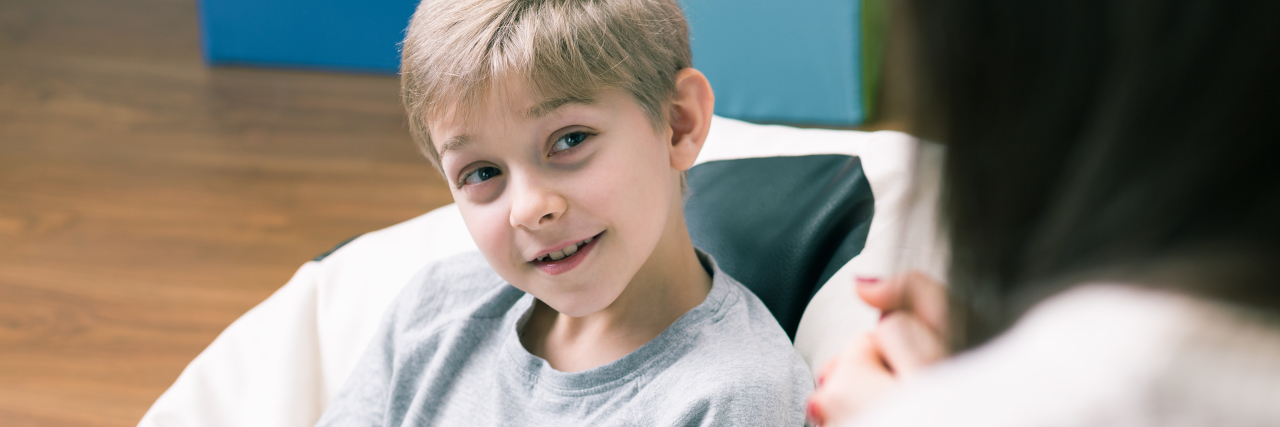“Daddy, why does she use that?”
“Mommy, what’s that thing that she’s riding on?”
When I am out in public, I will sometimes hear children ask their caregivers these questions pertaining to me and my use of a powerchair. Many times, a caregiver’s response will be “Shhh!” a look of embarrassment, and a walk in the opposite direction. More often than not, my response to this is: “No, it’s OK!” Then I’ll talk to the child and show them my chair, and all ends up well.
What I’ve learned most about living with a physical disability and children’s reactions to it, is this: children often have questions, as we all do. And they often like answers, too.
This summer when I began working at a summer day program for children with emotional and/or behavioral struggles, they all had questions. The younger children asked them, but the older children usually interjected, saying, “That’s rude to ask!” However, I welcomed questions, and quickly addressed them. A half hour into the first day of the program, the children seemed to completely forget that they ever had questions — except for wondering, “How fast does that thing go?” So I’d briefly put my chair on “rabbit” (the fast setting) to show them how fast my chair went.
Then one day my coworkers and I took the kids to the park. While there, the children decided they would race a few of my coworkers across the field. After the race occurred, a 7-year-old boy came up to me and asked a question I wasn’t quite expecting: “Miss Madison, can you please race me across the field in rabbit mode? Please?”
I chuckled and then said, “No, I’m sorry buddy. You run way faster than my chair will go!” While some could say that is why this child wanted to race me, I really do not think that was the case. I think he was genuinely curious about what it would be like to run alongside someone who uses a powerchair.
“Please can we just try it?”
“I’m really sorry, but not today, OK?”
Looking back, if I could change one thing about this interaction, it would be to not use comparison with the child. For instance, in my eyes, “You’re way faster than me” wasn’t a valid reason not to at least let him try to race me. Also, if I did say yes to his request, I could have used it as an opportunity to show him that life isn’t always about how fast you go, or how you get to the finish line, but it is about showing up for people. At 7 years old, I realize the child most likely wouldn’t understand this, even if I tried to explain it. But I do wonder if that lesson would’ve made at least a little bit of a difference in his life, just as it has made in mine.
I believe young children are often more perceptive than we give them credit for. For instance, although I’ve often served as a teacher of sorts to children, I’ve truly found they have taught me just as much as I’ve tried to teach them. They’ve reminded me to look at life with more wonder. They’ve reminded me it’s OK to laugh at myself, and not worry so much about what other people think. They’ve reminded me how important joy, confidence and care is to cultivating happiness. They’ve reminded me of the importance of talking about and celebrating differences, yet remembering we are all the same in many ways.
Lastly, they’ve reminded me that as much as I question if I’m doing this whole “living with a physical difference” thing “right,” there is no right or wrong way to live with it. What really matters is living, contributing, showing up (when possible), and doing my best to find and share the beauty and joy in life, and in differences. So to parents and caregivers: if your child asks questions about me or my chair in front of me, please don’t walk away. I know it is not your intention, but doing so will only add to the stigma that often unnecessarily surrounds disability. Instead, I would appreciate the chance to answer your child’s question, as I might even learn something from them, too.
We want to hear your story. Become a Mighty contributor here.
Getty image by Katarzyna Bialasiewicz.

